My passion for film photography began with a different sort of vintage lens, the kind you mount to an aged brass microscope. I’m a biologist and have always been fascinated with antique microscopes, even though my research is mostly done on computers. During the covid pandemic, the biology department at Western University (Ontario, Canada), where I work as a professor, took advantage of empty labs and classrooms to purge old, obsolete equipment. Every dafiny when I came to work, I’d stroll past forlorn microscopes sitting in the hallway awaiting their trip to the dump. Being the son of an antique dealer (my mom), I couldn’t leave these beautiful, 100-year-old scopes to such a sad fate, so I started hoarding them in my office. Thus, began my journey as an antique microscope collector.
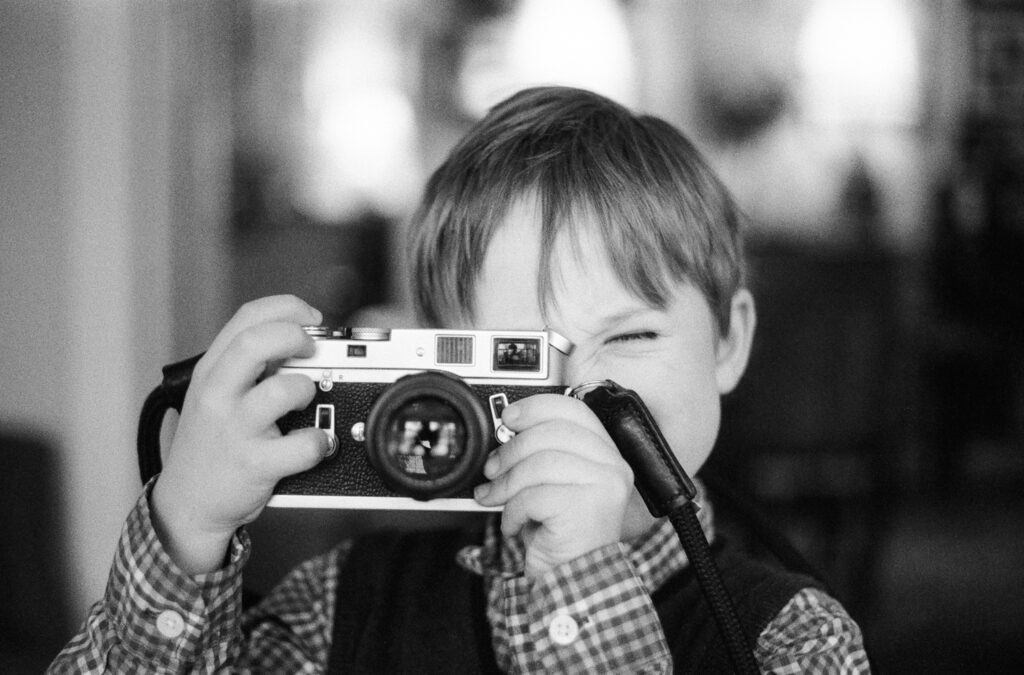
Many of the scopes I rescued were made by Ernst Leitz GmbH, the famed German optics manufacture from Wetzlar, which is better known today as Leica. I was immediately enamored by the quality and craftmanship of their microscopes and by the fact that after more than a century they still worked! Some of the scopes even include specialized analog camera attachments, allowing scientists of past to take 35mm film photos of their specimens. There were even black paint microscopes, showing the same kind of unique “brassing” patterns that are so sought after by camera collectors.
As my microscope addiction took hold, I began bidding on antique scientific items at auction and eventually my office became a small “Leitz” museum. Students and colleagues would squeeze through the door, stepping over dusty wooden slide boxes and 1920’s display stands and say: “David, I think you have a problem.” Through my interest in microscopes, I ended up reading and learning a lot about the development of early Leica “Barnack” film cameras, which were designed and assembled in the same factory making the microscopes and share many similarities with early Leitz microscope cameras, like the Mifilmca. However, the high cost of antique Leica cameras, as compared to the microscopes, meant that I could only appreciate them from afar.
A life-altering cancer diagnosis
On July 24, 2022, my microscope hoarding was put on hold. I woke up with a terrible pain in my abdomen and by the evening I was free of my appendix. At first, I thought that this was only a small setback to an otherwise stellar summer. But soon enough I was dealt a diagnosis of colon cancer (at the age of 41), almost five years to the day that my father passed way from cancer (carcinoma). At this point, my story will be familiar to anyone with first- or second-hand experiences of cancer: hospital waiting rooms, medical imaging departments, surgical wards, chemotherapy units… In the weeks following my diagnosis, I not only felt robbed of my health but stripped of my passion for science and collecting as well. I was so anxious, I struggled to do even the most basic of things, like respond to emails or go grocery shopping. I realized sitting around feeling sorry for myself wasn’t helpful. I needed a renewed purpose and something constructive with which to distract myself.
That something turned out to be a 1971 mint-condition Leica M4 rangefinder camera with a 50mm Summicron lens. Despite growing up in a mostly analog age (I was born in 1981), this was the first real film camera I’d owned, apart from disposable cameras. I bought some Kodak 400 TMax film, figured out how to load it, and then chased my wife and 6-year-old son around the backyard yelling at them to “hold still and not blink.” I brought the exposed roll to a local film studio (allthingsfilm.ca) and a few days later downloaded the scanned negatives.
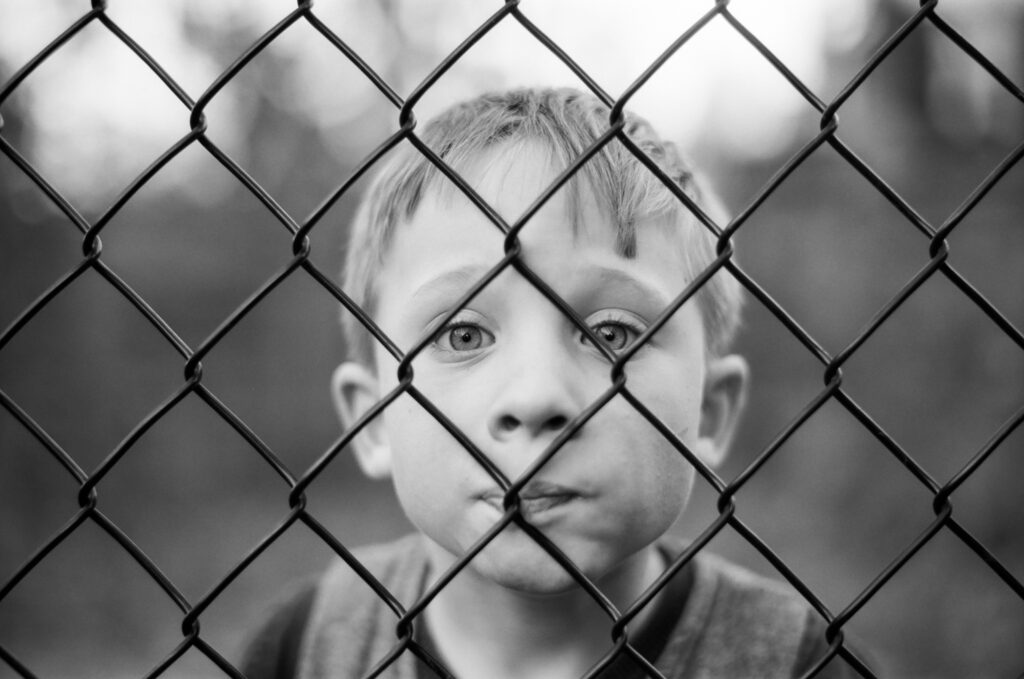
I wasn’t expecting anything exceptional from that first roll. Of course, my exposure and composition were way off and most of the photos were mediocre at best. Still, something about the analog quality of the images warmed my heart. I returned to them again and again over the coming days. Seeing my wife and son on film was the perfect antidote to the depression I’d been feeling. I was hooked. Any film enthusiast will relate to my ensuing behaviours: carrying my camera everywhere, sneaking out of the house to buy film, obsessively researching vintage lenses and watching YouTube videos about gear I don’t need and can’t afford.
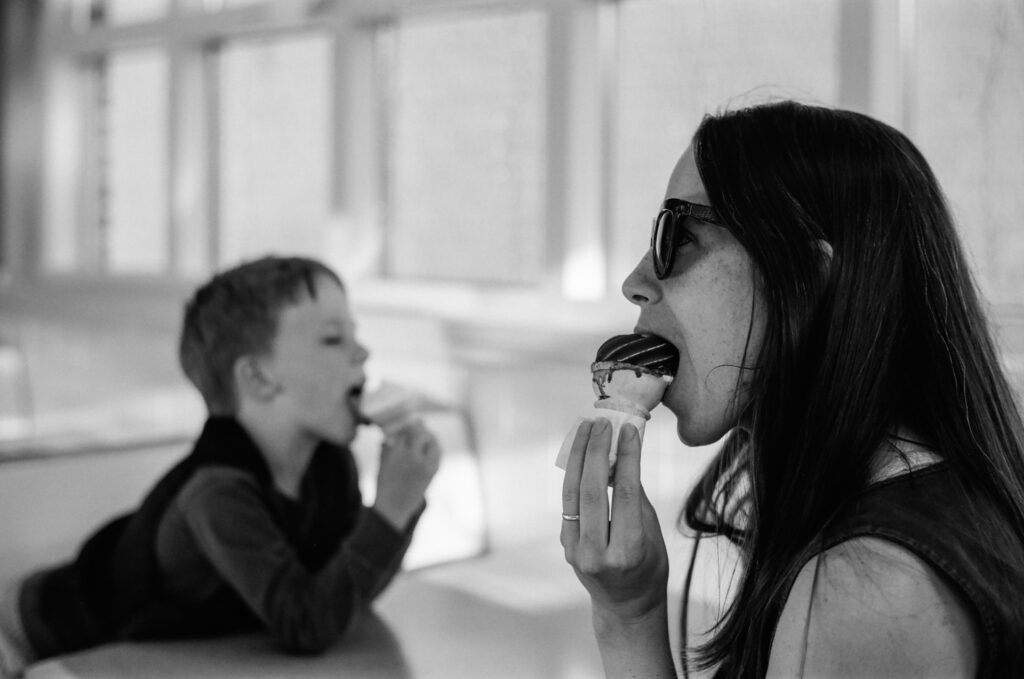
Renewed meaning from film photography
It’s been over two years since I was diagnosed with cancer. Dealing with the uncertainty of my health is a daily struggle, but I’m so happy I found film photography. When I pick up a half-century-old mechanical camera, feel brass on my fingertips, and the tactile release of the shutter some of my anxiety melts away. Moreover, the process of taking analog photos, including practicing proper exposure and creative composition, has been a constructive remedy for all the unconstructive changes my body and mind have undergone. Photography has also given me renewed meaning in life—to spend more time focusing on the things that matter, especially family and friends.
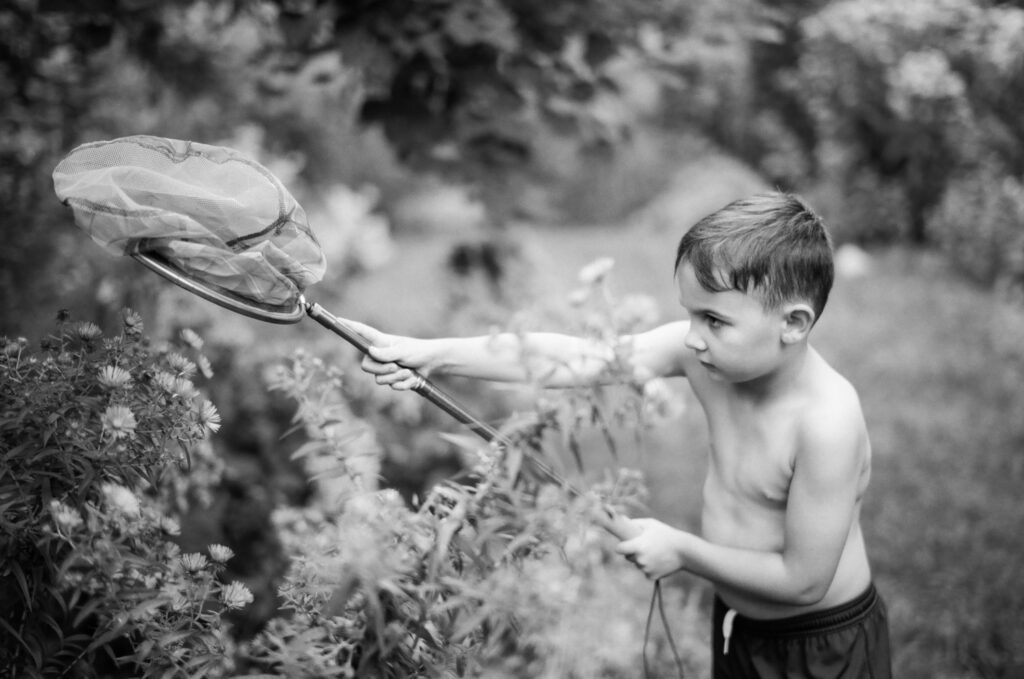
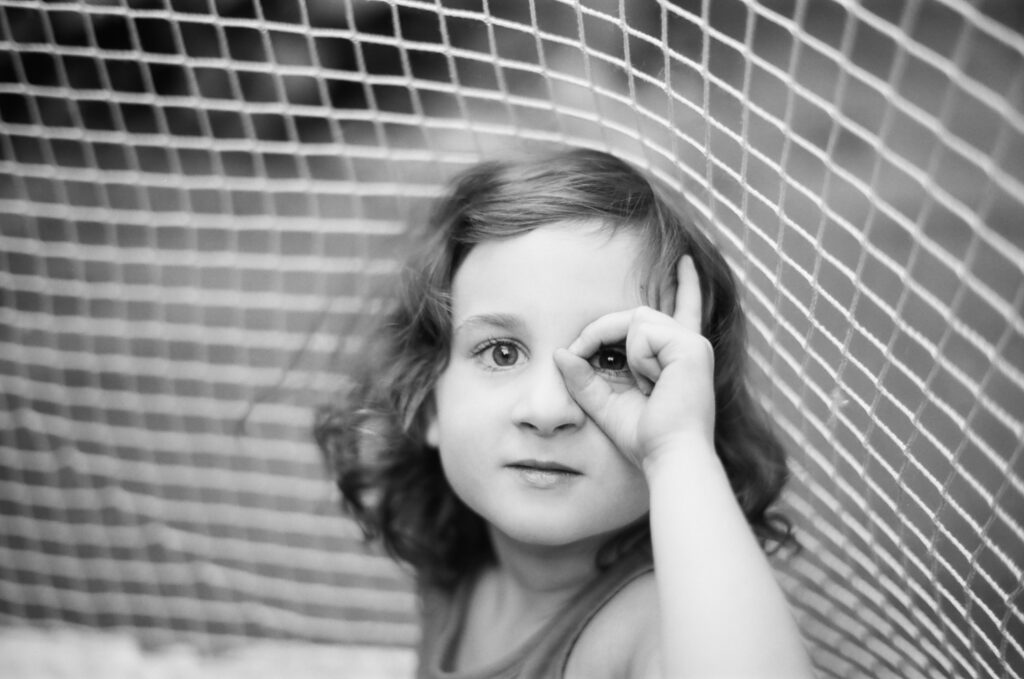
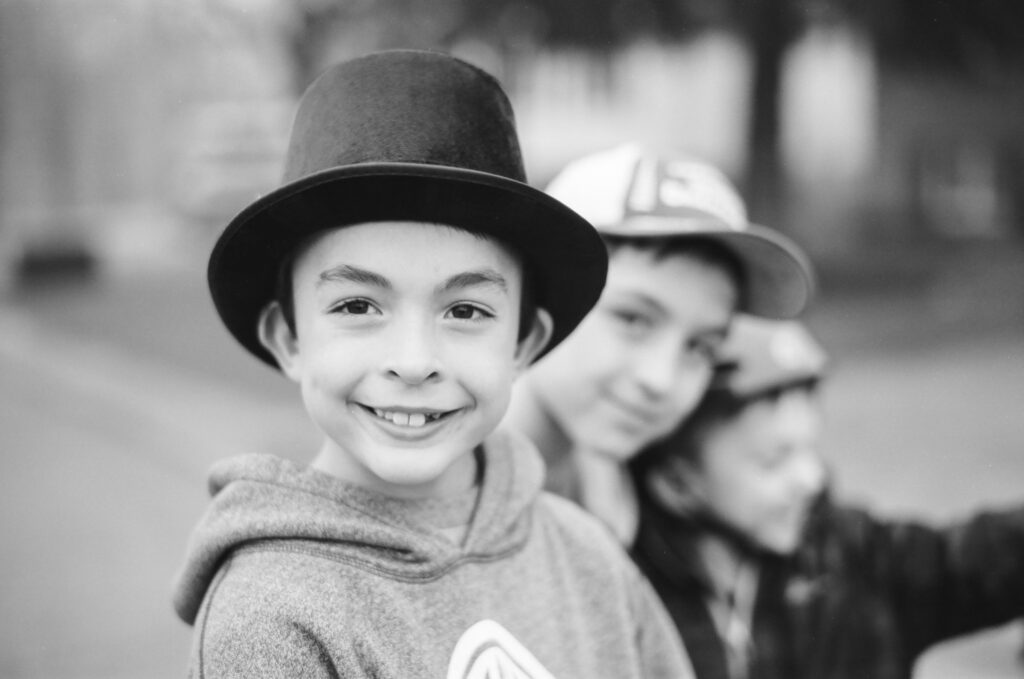
I’ve never considered myself an artistic or creative person, but film photography has somehow activated that part of my brain and personality, which I think will ultimately make me a better scientist and a more well-rounded person. Although I have a lot to learn about taking good photos, I do feel that I’m slowly cultivating my own style or at least certain preferences. I love portraits as well as images with a sense of absurdity and/or humour. I shoot mostly black and white (TMax 100 is my favourite film stock) and Leica rangefinders are still my go-to choice for cameras, although a 50mm Summilux has replaced the Summicron as my everyday lens. Recently, I delved into the world of medium format by adding a Rolleiflex 2.8F (planar) to my collection. I’m still coming to terms with the square format, but it’s slowly stealing my heart.
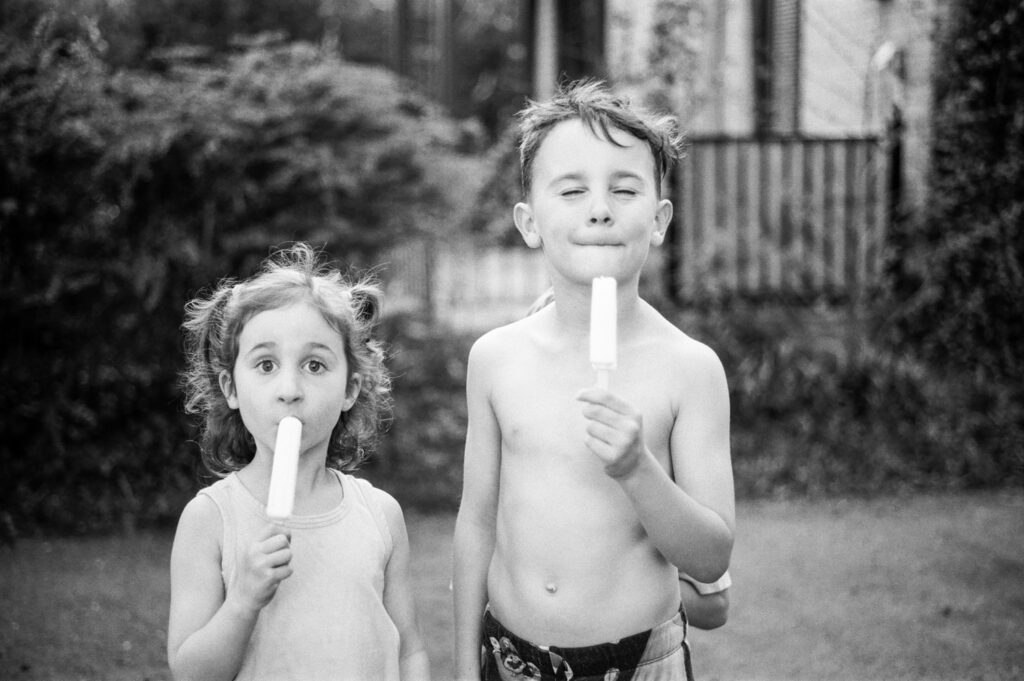

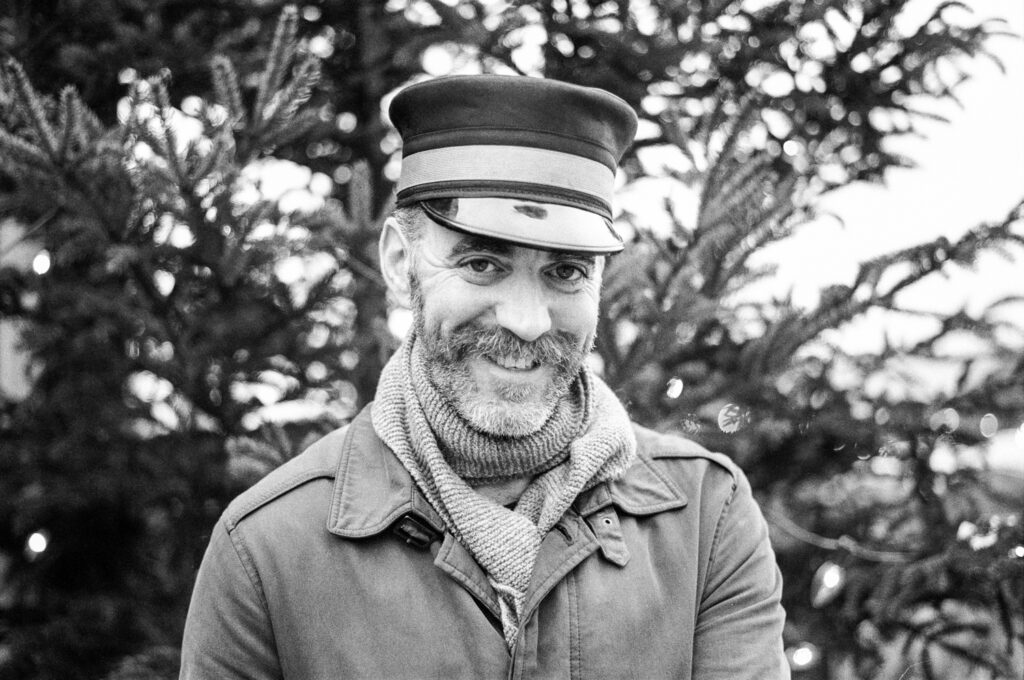
Sometimes friends will ask me: “Are you angry at having had cancer at such a young age?” “No,” I say. “I never questioned the universe when all the good things happened, so what right do I have to question it now that I’ve hit a rough patch? Moreover, I’ve had and continue to have a wonderful life, and whether I make it to 44 or 84, I consider myself lucky.” It sucks to get cancer, but I’m grateful that it led me to finding photography. Whatever time I have left, I’m confident that film photography will continue to give me meaning and purpose.
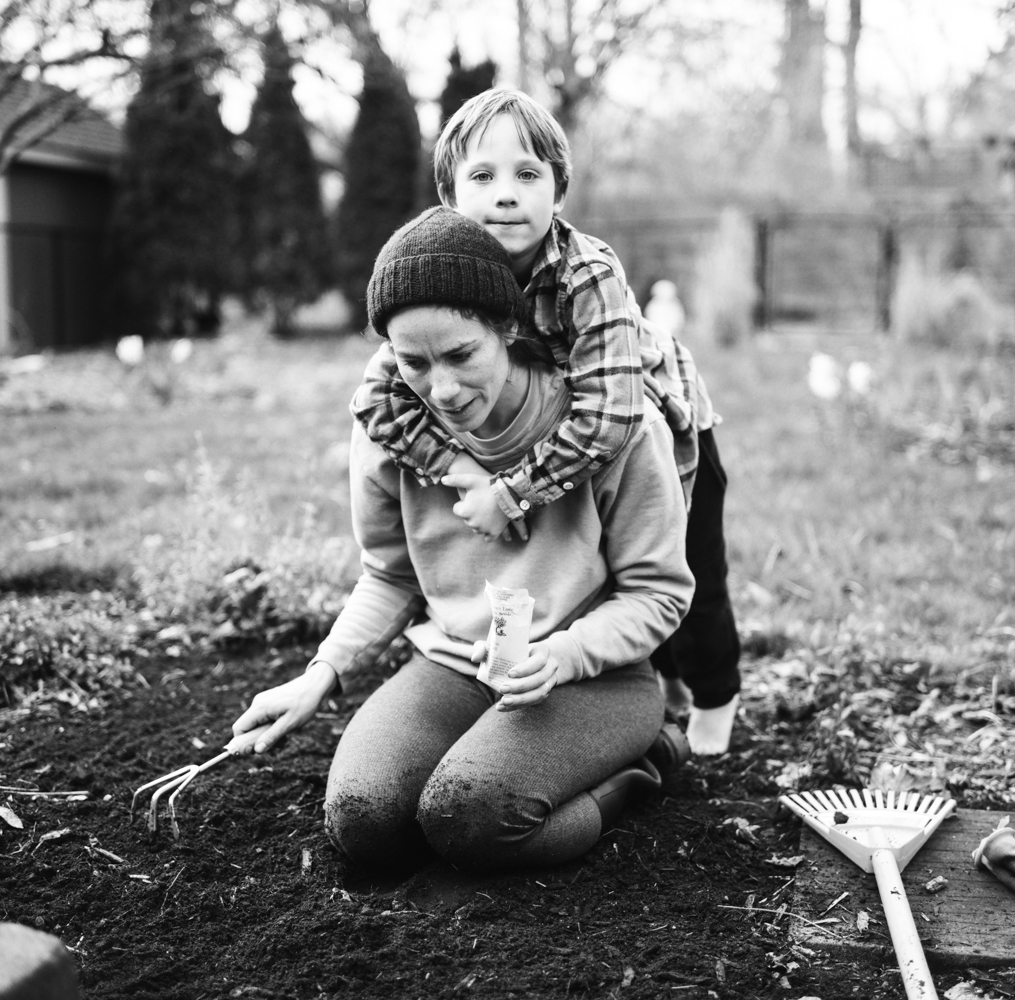
If you are interested in seeing more of my images, I regularly post to Lomography and Leica Fotografie International. I can also be found on Instagram.
Share this post:
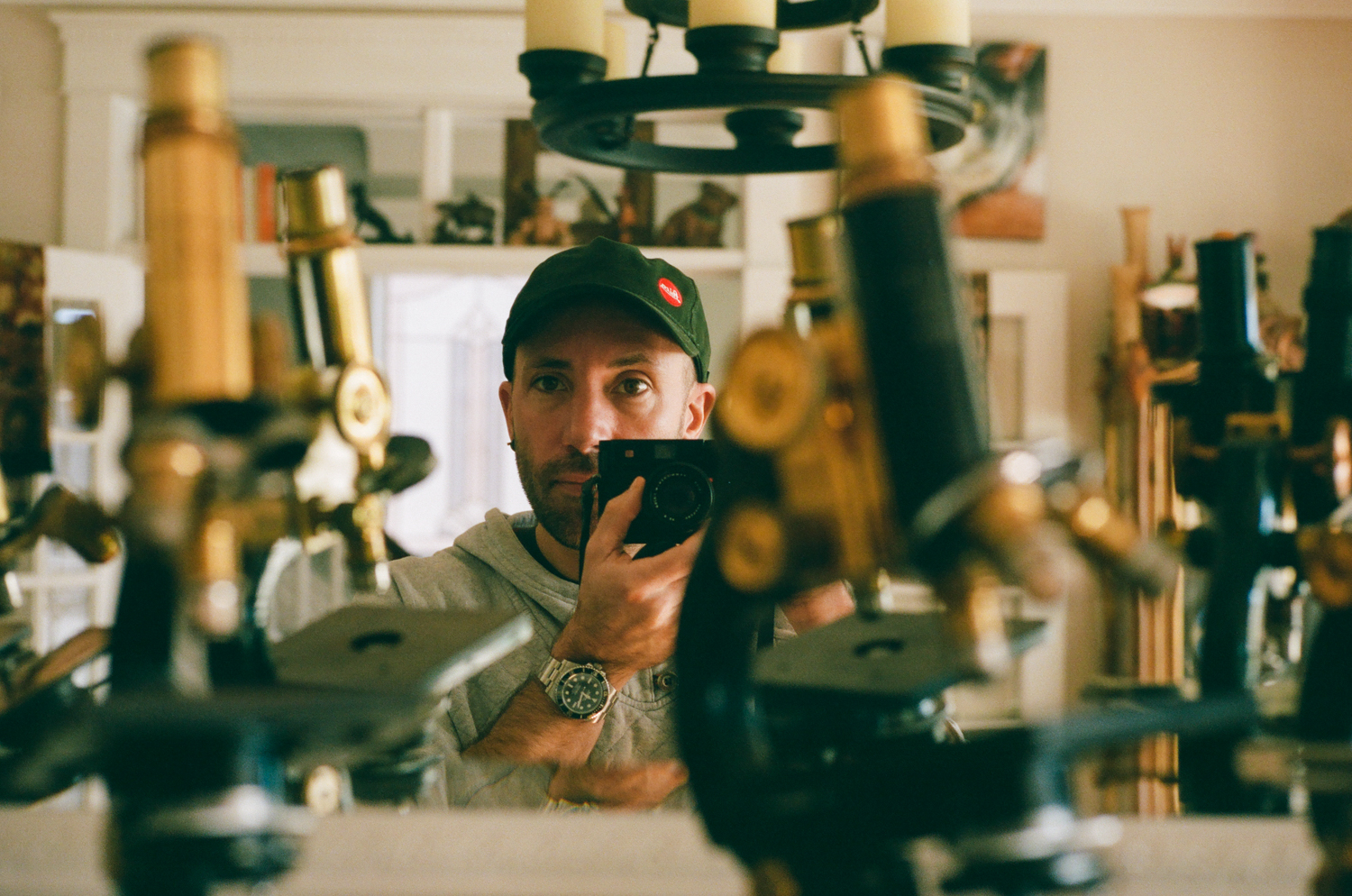
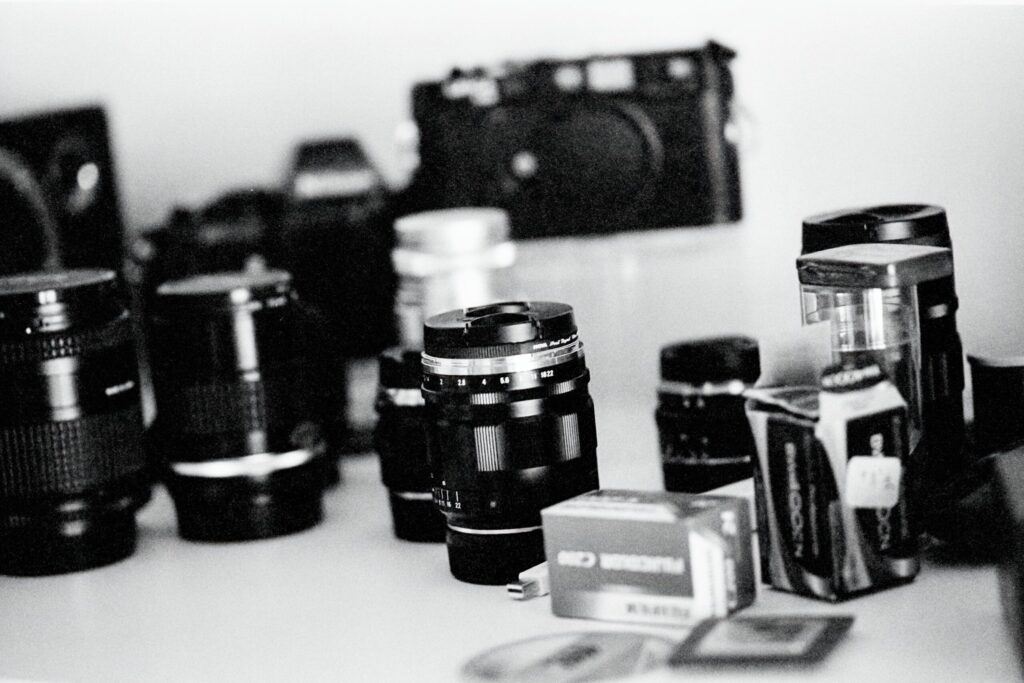
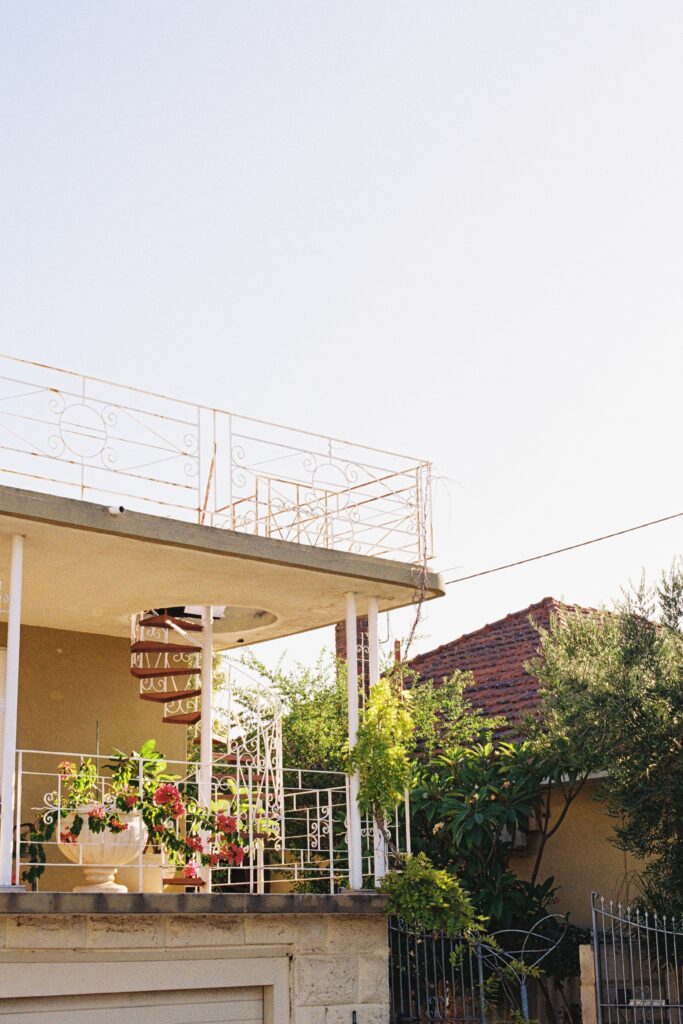
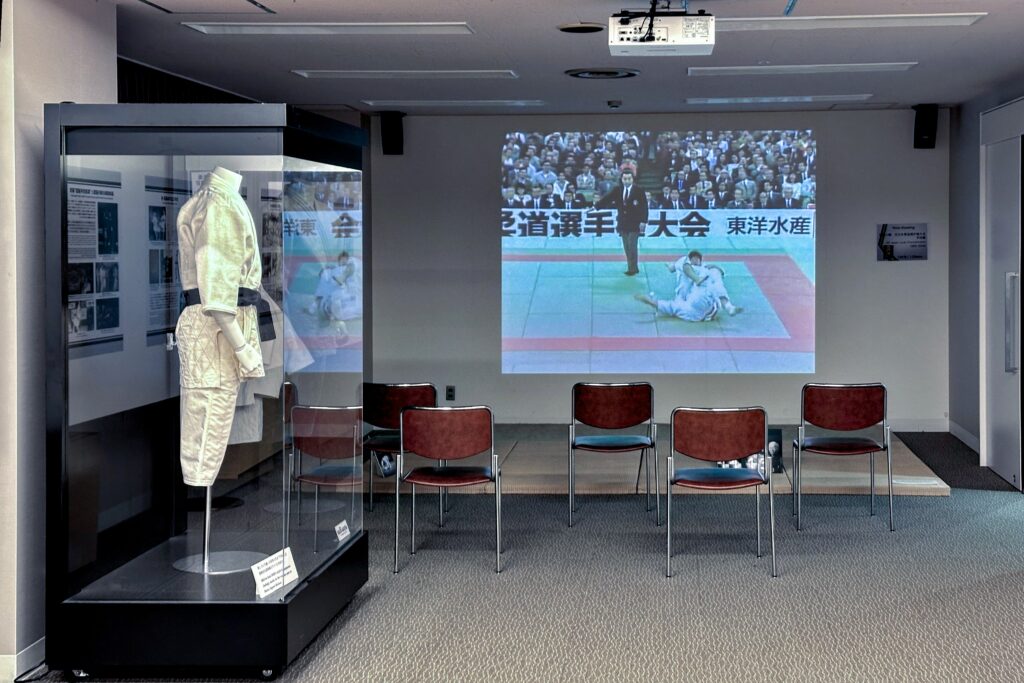
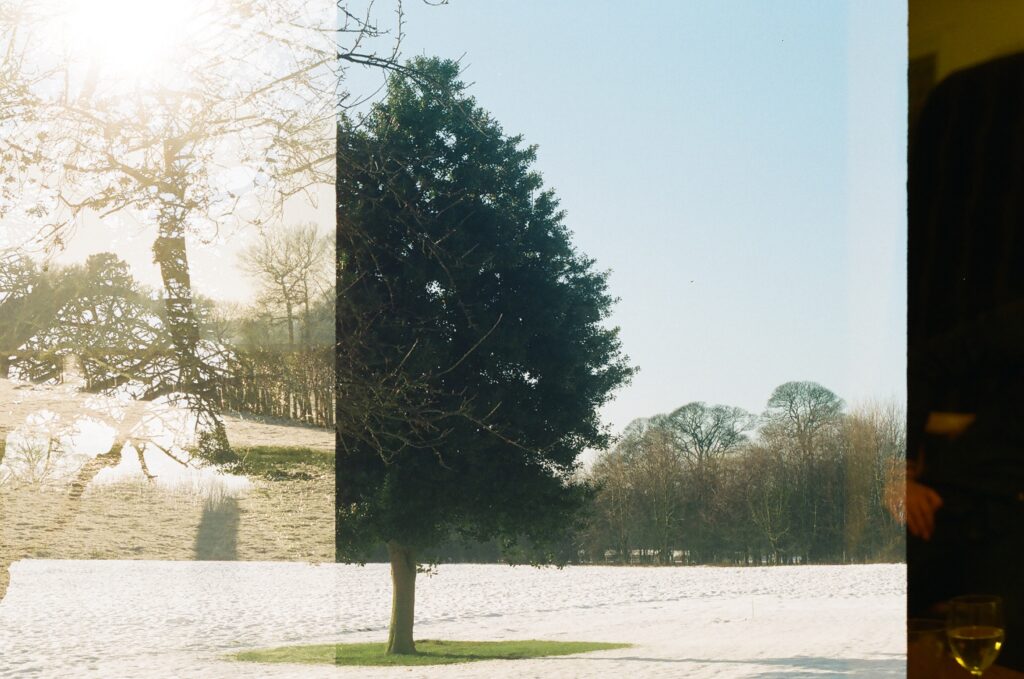




Comments
Geoff Chaplin on A Collector’s Journey From Microscopes to Cancer to Cameras
Comment posted: 27/08/2024
Comment posted: 27/08/2024
Keith Drysdale on A Collector’s Journey From Microscopes to Cancer to Cameras
Comment posted: 27/08/2024
Comment posted: 27/08/2024
Comment posted: 27/08/2024
Miguel Mendez on A Collector’s Journey From Microscopes to Cancer to Cameras
Comment posted: 27/08/2024
Comment posted: 27/08/2024
Mike Orgill on A Collector’s Journey From Microscopes to Cancer to Cameras
Comment posted: 27/08/2024
Bill Brown on A Collector’s Journey From Microscopes to Cancer to Cameras
Comment posted: 27/08/2024
Comment posted: 27/08/2024
Juna on A Collector’s Journey From Microscopes to Cancer to Cameras
Comment posted: 27/08/2024
Comment posted: 27/08/2024
Jeffery Luhn on A Collector’s Journey From Microscopes to Cancer to Cameras
Comment posted: 27/08/2024
A very well written and heart warming piece! Great photos too! I'm 72 now, retired from a 55- year career as a professional photographer ans currently teaching photography at a couple colleges. I try to impress upon my students that preserving a moment on film, or pixels, is a small piece of an important legacy. Not just for the photographer, but for the subject too. Currently my free time is doing street shooting in B&W, often with 4x5 and 2 1/4 cameras, making prints, and giving them to the subjects. These are often store owners, street musicians, family, and friends. People don't like to have a cell phone shoved into their face, but willingly pose for a big camera. I've made hundreds of pleasant acquaintances. All those people will treasure those photos. David, you are probably doing the most important work if your life right now.
Comment posted: 27/08/2024
Gary Smith on A Collector’s Journey From Microscopes to Cancer to Cameras
Comment posted: 27/08/2024
Comment posted: 27/08/2024
Comment posted: 27/08/2024
Daniel R on A Collector’s Journey From Microscopes to Cancer to Cameras
Comment posted: 28/08/2024
Comment posted: 28/08/2024
Comment posted: 28/08/2024
Alexander Seidler on A Collector’s Journey From Microscopes to Cancer to Cameras
Comment posted: 28/08/2024
Comment posted: 28/08/2024
Yuze Chen on A Collector’s Journey From Microscopes to Cancer to Cameras
Comment posted: 28/08/2024
Comment posted: 28/08/2024
Gil Aegerter on A Collector’s Journey From Microscopes to Cancer to Cameras
Comment posted: 29/08/2024
Comment posted: 29/08/2024
Ian Do Carmo on A Collector’s Journey From Microscopes to Cancer to Cameras
Comment posted: 31/08/2024
Comment posted: 31/08/2024